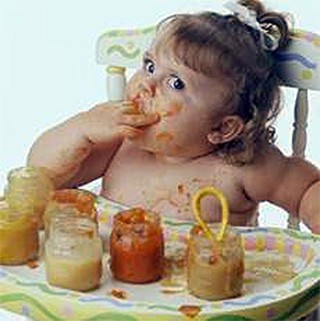Raising Healthy Eaters
Raising Healthy Eaters

As parents we worry about whether or not our children are eating enough, eating often enough and eating the right foods. Starting at birth, before children are able to speak, they have ways to demonstrate when they are hungry. Hunger cues in an infant lead to feeding, and these cues go away until the baby is hungry again. Once the baby is a bit older, he or she may turn away from food when he or she becomes full during feeding times.
The toddler stage can be challenging to parents. Kids seem to be too busy to eat, or become extremely picky in terms of what and how much they will eat. They may eat the same food over and over again and not try anything else. Some days it seems that they don’t eat at all. Children will usually eat as much as they need. However, as parents, we may try to force our children to eat, for fear that they will not grow well and be healthy.
Raising healthy eaters involves a lot of different things. Much research has been done in regards to what our responsibility as parents is when it comes to feeding our children. The Ellyn Satter Institute has come up with a division of responsibility when it comes to feeding our children depending on their stages of development.
Included below are some of these tips:
What are we as parents responsible for?
From infancy through toddler stages the parent is responsible for:
- What the child eats.
- When the child eats.
- Where the child eats.
From infancy through toddler stages the child is responsible for:
- How much food to eat.
- To eat or not to eat the food the parent offers.

Try not to worry too much about whether your children are eating enough. Children usually eat enough to be healthy even if it doesn’t seem like it at times. Trust them to know when they are hungry. It will save you a lot of frustration and time!
Visit the Ellyn Satter Institute for more information about raising healthy eaters.


 TARRANT COUNTY, TX
TARRANT COUNTY, TX

 Chronic Disease Prevention
Chronic Disease Prevention